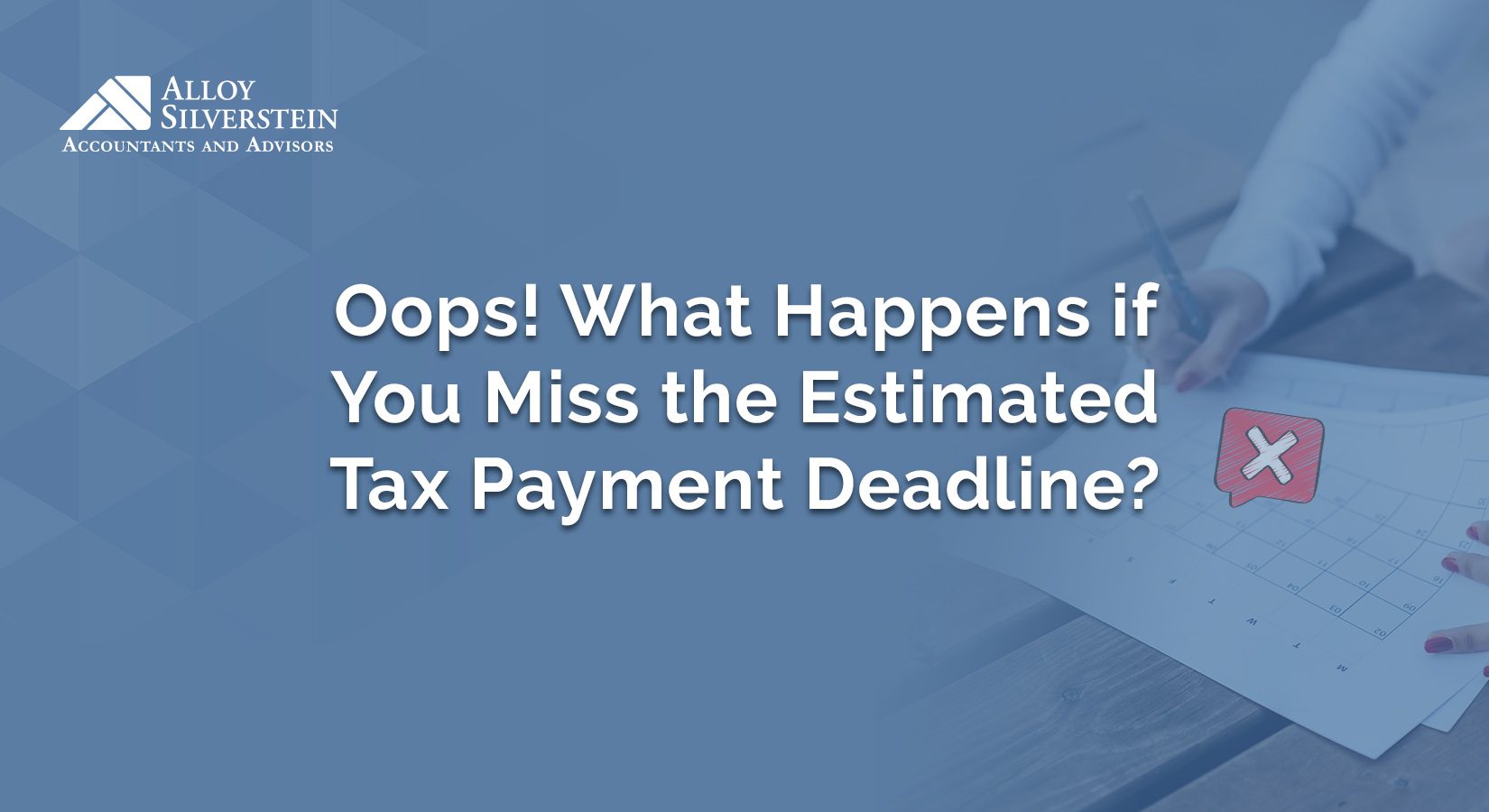
Just last month another tax due date has come and gone — the September 15th deadline for third quarter estimated tax payments. To stay out of the ire of the IRS, self-employed contractors and some taxpayers need to pay attention to more dates on the calendar than just April 15th. What penalties do you face for a late estimated tax payment?
Many clients like to keep their Federal Tax withholdings as low as possible to avoid the IRS having their funds interest-free throughout the year. Other taxpayers, especially those with non-payroll income, must make quarterly payments to the IRS. As long as these quarterly payments are made timely and the amount of the payments is sufficient in the eyes of the IRS you will not be subjected to underpayment penalties. However, if underpaid, the IRS applies late payment penalties in addition to the income tax owed. This penalty applies even if you file your 1040 tax return on or before April 15th.
The tax code has a basic set of rules to determine if you owe a late tax payment penalty. The rule is call The Safe Harbor Rule. Here is a recap of the rule. If you follow the rules, you can avoid any penalties.
If you find federal tax withholdings made so far this year to be too low, what can you do?
If you are an employee there may be a way to avoid a penalty if you underpaid or neglected to pay your estimated tax payment for a quarter. Increase your payroll withholdings in later months of the year to build up your federal withholdings to cover the shortfall. Trying to catch up by paying more on your next estimated quarterly tax payment wouldn’t work since the prior quarter’s shortfall remains per IRS penalty calculations.
For whatever reason, in calculating a potential underpayment penalty, payroll withholdings are treated as if they were all made at the beginning of the year, while quarterly tax payments (form 1040-ES) are tracked by the date received.
To increase your withholdingssimply provide your employer with a revised W-4. Just be careful that you leave enough in your paycheck to avoid other financial hardships.
Following are the general due dates for quarterly estimated tax payments, both federal and state. These dates may vary slightly if the date falls on a weekend or federal holiday.
Under the Internal Revenue Code, the rate of interest is determined on a quarterly basis. In late August, the IRS announced that interest rates will increase for the calendar quarter beginning Oct.1, 2023. For individuals, the rate for overpayments and underpayments will be 8% per year, compounded daily. Here is a complete list of the new rates:
If you need tax planning assistance, schedule your year-end meeting with your CPA soon so you can be prepared and well-equipped for the upcoming tax season.
Empowering business owners and individuals in South Jersey and Philadelphia to feel confident through proactive accounting and advisory solutions.